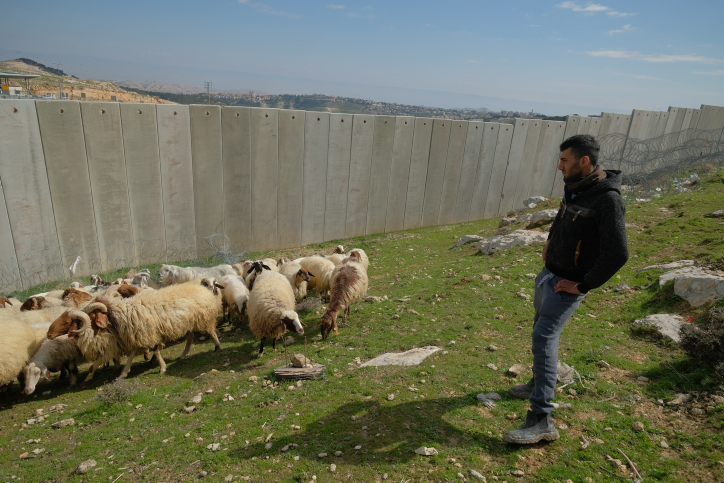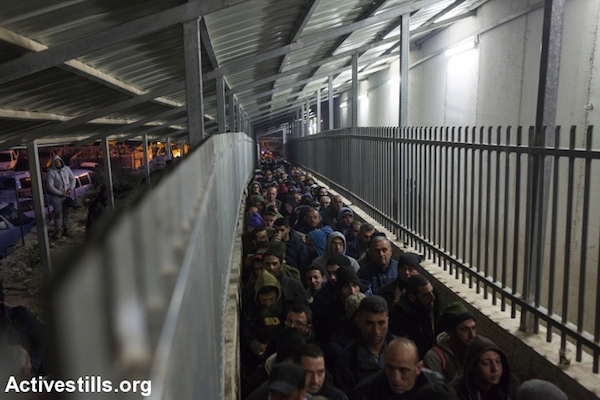Israel’s control over the West Bank has long ago morphed into a regime based on ethnic discrimination and segregation. Let’s start calling it like it is.
By Yariv Mohar

Recently we have been seeing the resurgence of a right-wing discourse that opposes both the annexationist far-right and the left. Instead of supporting far-reaching solutions, these rightists believe that the status quo in the West Bank is preferable and must be kept up for as long as possible. In any case, say the supporters of the status quo, we have not faced any significant international pressure against Israel; thus we can continue with business as usual for quite a while, until conditions become more favorable to us. Unfortunately, they are probably right — at least for now.
Many are not aware of this, but contrary to popular belief, the occupation is actually not illegitimate according to international law. According to the law, the occupation must be ended at some point, and as long as it exists, it must adhere to certain rules and limitations. It’s not for nothing that international law defines how the occupying power must act — since in principle, military occupation is legitimate, even if undesirable. Thus the attempt to present the situation in the West Bank as “disputed territories held temporarily under military control until their status is determined” serves the Israeli narrative. It certainly accords with international law, which guides the behavior of most governments and international institutions.
On the other hand, a regime of discrimination that distinguishes between populations based on their ethnicity or nationality is not legitimate according to international law. There are precedents of harsh sanctions against regime of this type, like in the case of Apartheid in South Africa. This is why a regime of discrimination will likely face significant international pressure.
Who is considered human?
The situation in the West Bank is a clear-cut example of a regime of discrimination: one population made up of subjects is denied all civil rights under military law, as opposed to another population made up of citizens from the ruling country. Beyond citizenship, this discrimination is expressed in almost every aspect: public land is allocated to Jewish settlers only (aside from the peanuts given to Palestinians as compensation for their expropriated land); nearly every illegal outpost is connected to water and electricity, while Palestinian villages in Area C (under full Israeli control) live without any infrastructure for years on end; the army prevents the development of Palestinian communities, while Israeli settlers have a direct say in the development of their communities; Israelis and Palestinians face different criminal justice systems, etc.

What, then, are the consequences of all this? As long as Palestinians, human rights organizations, international institutions, and governments view the situation in the West Bank from the lens of temporary occupation, the likelihood that meaningful pressure will be put on Israel to put an end to its military regime — or grant citizenship to the Palestinians there — is relatively small. If these various players begin to view the situation in the West Bank as it is — a perpetual regime of discrimination — the chances for international pressure will grow.
Furthermore, should more governments and institutions begin to speak about a regime of discrimination, they will be obligated to act according to both international law and legal precedents vis-a-vis these kinds of regimes.
The discussion around the term “occupation” often revolves around whom the territory belongs to. The term “regime of discrimination” brings up a discussion over who is worthy of being considered a human deserving of equal rights. It brings up a world of associations that, as far as morals and emotions go, is far darker and clearer. People do not tend to get into a discussion over land in a territory far away from them, but few are the people who can remain apathetic toward institutionalized discrimination. Should we manage to change the way we view the West Bank, the supporters of the status quo will discover that the price of maintaining this regime will only increase.
Yariv Mohar is an Israeli human rights activist. This article was first published in Hebrew on Local Call. Read it here.
